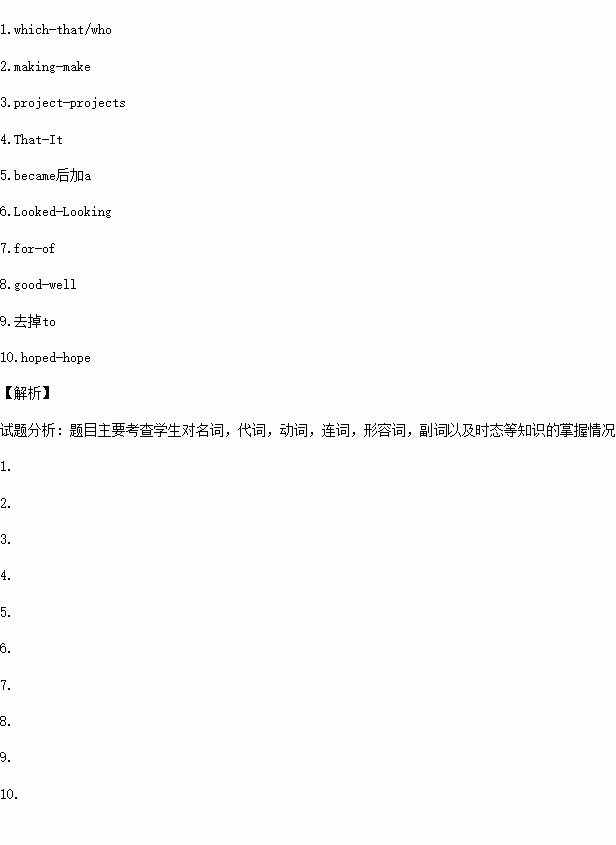题目内容
短文改错
假定英语课上老师要求同桌之间交换修改作文,请你修改你同桌写的以下作文。文中共有10处语言错误,每句中最多有两处。每处错误仅涉及一个单词的增加、删除或修改。
增加:在缺词处加一个漏字符号( ),并在其下面写出该加的词。
),并在其下面写出该加的词。
删除:把多余的词用斜线( )划掉。
)划掉。
修改:在错的词下划一横线,并在该词下面写出修改后的词。
注意:1. 每处错误及其修改均仅限一词;
2. 只允许修改10处,多者(从第11处起)不计分。
Of all the teachers in my primary school, the one which impressed me most was Mrs. Huang. She was my 5th grade teacher. She was able to making learning fun and I liked her classes very much. Besides, she made me leader of many group project, which gave me confidence. That was with her help that I soon became top student in our class. Looked back on it, I’m very proud for having such an excellent teacher. The reason why I did so good was that she made me to feel confident. I am really grateful to her and I hoped one day I will become a teacher like her.

